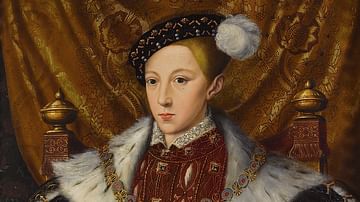Wallis Simpson (1896-1986) is often remembered as the wife of King Edward VIII, the Duke of Windsor. British monarch for less than a year in 1936, Edward preferred to abdicate the throne to be free to marry Wallis, an American woman who was considered unfit for the role of queen consort due to her previous two divorces. Before meeting Edward, Wallis spent a year in China, a period of time around which many rumours have spread. In this interview, James Blake Wiener speaks to Paul French, author of the book Her Lotus Year: China, The Roaring Twenties and the Making of Wallis Simpson (2024). Paul French is a British writer and journalist who worked in Shanghai for many years.
JBW: Wallis Simpson is often remembered for her role in the British abdication crisis of 1936, but Her Lotus Year reframes her as a more complex figure. Paul, what was it which motivated you to reexamine Wallis’ sojourn in China and write this title?
PF: I lived in Shanghai for many years and visitors would often ask about all the infamous rumours surrounding Wallis’s time in the city. The British tabloids particularly repeatedly bring up rumours of her sexual infidelities in Shanghai, suggested involvement in everything from prostitution to gambling rings, liaisons with opium dealers, horse nobbling gangs, posing for pornographic photographs, numerous affairs etc. I thought it was time to look a little closer at these allegations – which did so much to ruin her reputation in 1936 around the time of the Abdication Crisis.
Additionally, the year she spent in China – summer 1924 to summer 1925 – was an incredibly turbulent and politically fractious time of strikes, warlordism, and banditry. It’s a really pivotal year in China’s modern history between the end of the Qing and creation of the republic in 1911 and then the Japanese onslaught on China in 1937. I thought it would perhaps be interesting to show that year and its events through the eyes of someone a western audience perhaps has some familiarity with.
JBW: You have long specialized in Chinese history, and it is clearly a passion of yours. While researching this book, what discoveries or archival findings most surprised you as to Wallis’ time in China? Is there any single discovery or fact that we ought to know about in particular?
PF: Well, the rumours were all false. But, the stories all really did happen, just to other people. The British Intelligence officers who compiled the so-called ‘China Dossier’ on Wallis knew their Shanghai and old Beijing underworlds!

About Wallis herself I think the major revelation to me (the rumours of her in Shanghai never sounded right to me) was that she had come to Hong Kong initially with her husband (her first husband Win Spencer), a commander in the US Navy stationed there. He was a violent drunk who physically beat her repeatedly and she had to escape him. I don’t think that, whatever you think of Wallis Simpson, many think of her as an abused woman forced to flee a violent man into the dangerous hinterlands of 1924 China.
JBW: As a woman on the verge of divorce in a foreign country, Wallis faced the conflicting pressures of social conformity and personal ambition. In many ways, she was concurrently a product of her time and a woman ahead of it. Would it be fair to say that Wallis’ time in China served as a force in a personal transformation that would later color her life as the Duchess of Windsor?
PF: Absolutely. It took her a long time, and a lot of fights and beatings, before she left Spencer in Hong Kong. Her genteel Baltimore upbringing was adamantly against divorce and always assumed the breakdown of a marriage was the woman’s fault. But she finally plucked up the courage and left him. She went to Shanghai thinking she could get a divorce at the US Consulate there. She couldn’t as it transpired, but by then she had made the break and was in China.
After Shanghai, Wallis went to Beijing and fell in love with the ancient capital. It was here she had a genuine and passionate love affair, mixed in diplomatic circles, both foreign and Chinese, lived on a hutong in a charming courtyard house and really transformed into a more cosmopolitan woman able to mix in international society. She also developed a love of Chinese style – cheongsams, jade, embroideries, furniture etc – which stayed with her forever and wherever she lived afterwards.
JBW: Her Lotus Year vividly presents expatriate life in China during the 1920s. You also highlight Wallis’s interactions with other colorful characters. How representative – or exceptional – was Wallis’ experience compared to other Western women in China during the 1920s and 1930s?
PF: Independent western women were surprisingly common in 1920s Beijing. I think there’s a number of reasons for this including the many single (often widowed after WW1) intrepid European and American woman, the extension of the ocean liner routes to northern China, and the fact that in a Chinese city (as opposed to a colony like Hong Kong or a foreign-controlled treaty port like Shanghai) they could be entrepreneurial. They simply weren’t governed by the rules and social conventions of their home countries in Beijing. I think this is similarly why so many gay male aesthetes congregated in Beijing too. It almost became a kind of Asian outpost of the famous Lost Generation we normally associate with Paris in the ‘20s.

JBW: Your background in narrative nonfiction and storytelling is evident throughout this work. How did you balance historical accuracy with crafting a compelling and humanizing portrait of Wallis Simpson in Her Lotus Year?
PF: In my two previous books – Midnight in Peking and City of Devils – I’ve tried to reconstruct true crimes in inter-war China using literary non-fiction, by which I mean that I do all the research and then write it up using the techniques and style of the novelist. But I never invent characters, names, places or events. So I footnote, and list sources. You can check my research. But I want to write compelling narratives that take aspects of Chinese modern history to a wider audience than those who would buy a more straightforward history book. Let’s be honest, Chinese history is tough for many western readers, however fascinated they are by the place and the times – China has a LOT of history, the names can be tough for western readers, the places and events (who does any Chinese history in school in Europe or America?) unfamiliar. But perhaps wrapping it around popular genres like true crime or royal biography I can entice in a wider readership, but always making sure that the China history crowd feel they’re getting something original too.
JBW: Paul, we thank you very much for lending your time and expertise to our readers! On behalf of World History Encyclopedia, I wish you many happy adventures in your research.










